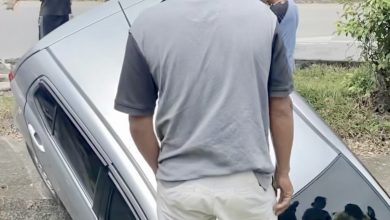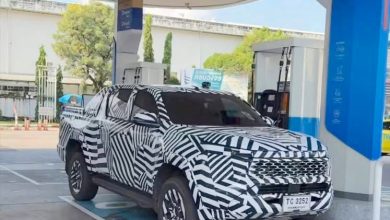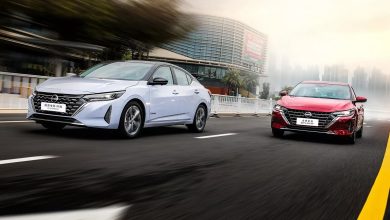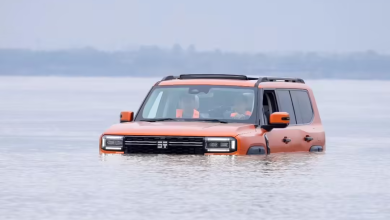Mercedes eActros Electric Truck Nearing Production
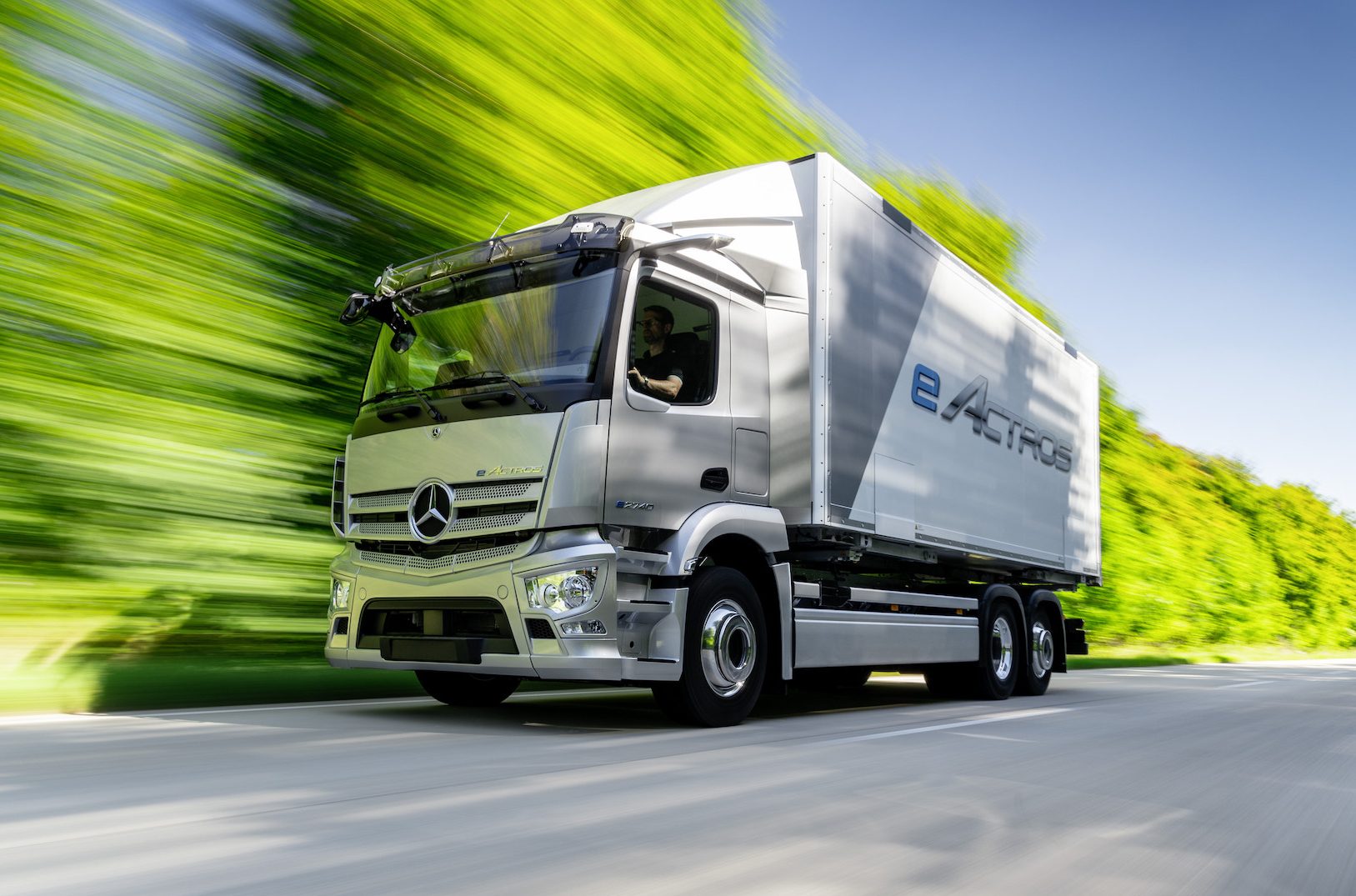
Electric drive may also be the next step in the commercial vehicle sector too.
Aside from electricity possibly being the way forward in passenger vehicles, the commercial haulage industry is also looking towards this zero-emission form of propulsion as the next step in the industry.
Many new commercial vans already feature an electric-drive variant within its lineup, using existing EV parts from its passenger-ferrying version to cater to the growing demand of green haulage. Especially with the increasing number of cities banning piston-powered vehicles within its boundaries in the near future. That said however, while smaller vans have been easier to electrify, larger lorries proved more difficult.
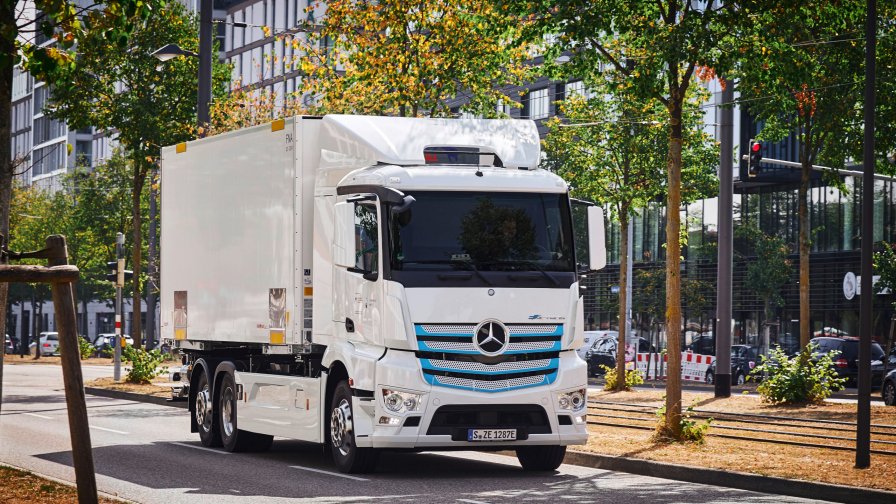
Mercedes-Bens Trucks though proved an EV lorry was a possibility when it was the first manufacturer to show the world a heavy-duty electric truck, unveiled at the Frankfurt Auto Show in 2016. Four years on from then, the eActros is now readying for deployment into the commercial fleet.
Based on the frame of the current Actros rigid bodied truck, the eActros is available in either 18 or 25 tonne variants. To those not familiar with the trucking world, this translates to the eActros not being the full articulated semi-truck, but a smaller version of that. Powering this new electric truck is twin 126 kW electric motors on the rear axles, each generating 485 Nm of maximum torque. It may not seem like a lot, but after passing it through the transmission, maximum torque is thus amplified to 11,000 Nm per motor. A similar figure to that of a diesel powered truck.
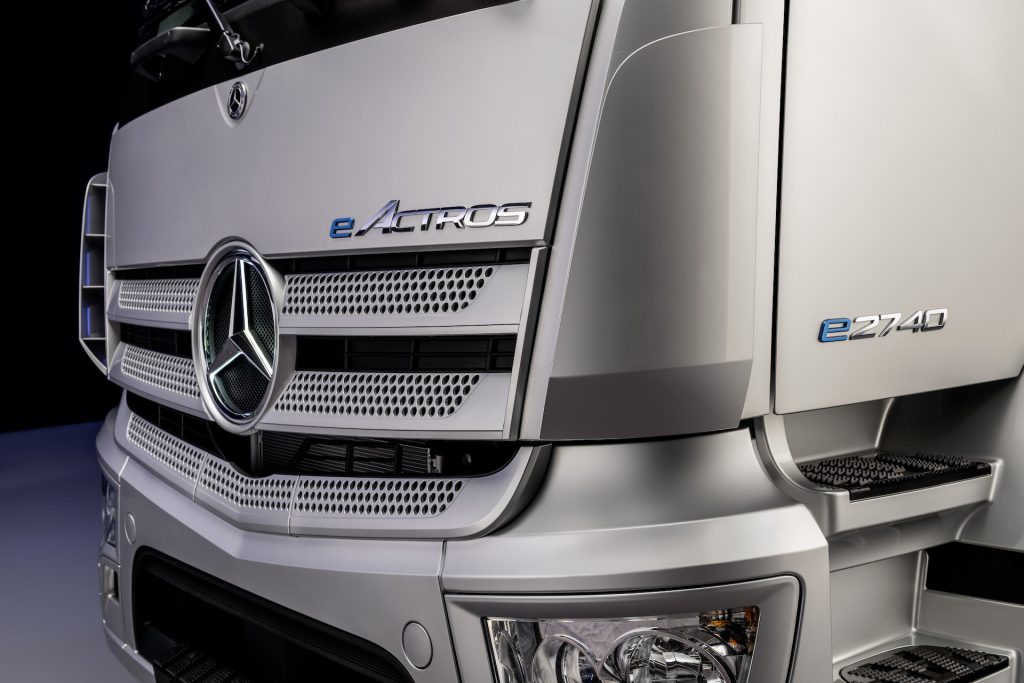
Carrying capacity of the eActros is also on par with its diesel counterpart, with a maximum permitted axle load of 11.5 tonnes. A 240 kWh lithium-ion battery pack can fully charge in 2 to 11 hours using 150 kW or 20 kW power supply respectively. No word yet on the range of this zero-emissions truck though, but it is hinted by the manufacturer that this truck will be mainly suitable for ‘short-radius distribution operations’ only.
Speaking of on the road operations of this electric truck, the eActros has been in practical trial for one customer since September already, with other customers from various industries taking delivery near the end of the year for a two year test period. Partly sponsored by the German government, 20 customers will evaluate the eActros’ suitability in their respective fields, in addition to aiding in the development process of this Mercedes electric truck.
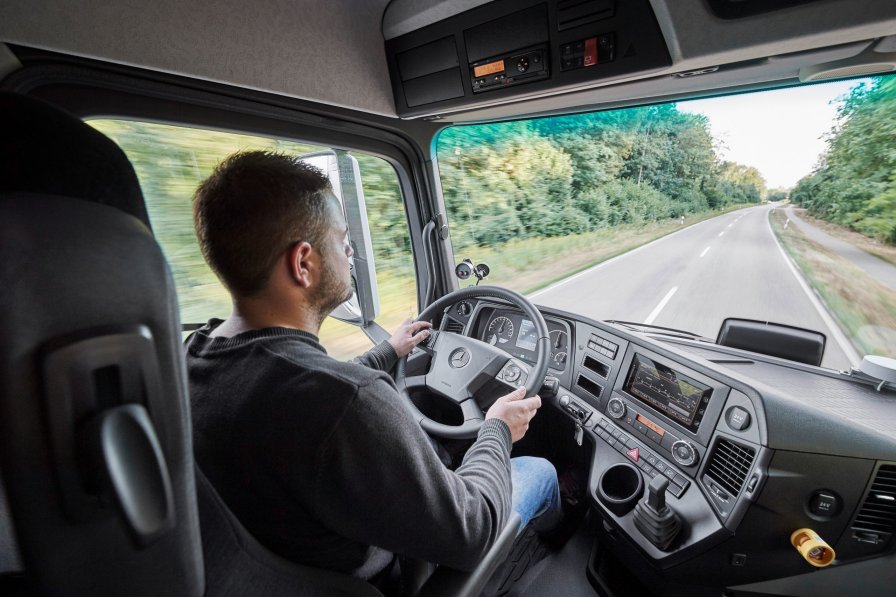
The German truck manufacturer has said that it intends to put the eActros into series production in 2021, but based on the tests that still needs to be conducted, it will perhaps be a good few years before we see one on the roads anytime soon, especially in Malaysia. This though could provide the valuable opportunity for the electric charging infrastructure to be improved locally. Commercial electrification should be the easiest segment to electrify after all, due to their set routes and destination, more so than electric passenger vehicles anyway that is.
PRESS RELEASE: eActros Heavy-duty Electric Truck
Innovation fleet in practical trial.
At the IAA 2016, Mercedes-Benz Trucks was the first manufacturer in the world to show a heavy-duty electric truck. The technology leader has now moved on a step with its comprehensively refined eActros, which celebrated its world premiere in 2018: its deployment with customers began a short while ago. The first eActros of the so-called innovation fleet has been in practical trial for one customer since September already. The subsequent vehicle handovers from the first phase of the project will follow until the end of the year.
Two-year test with 20 customers – series production 2021.
20 customers – all from various industries – are integrating the heavy-duty electric truck into their fleets. Each of these selected customers will put a near-series version of either the 18- or 25-tonne variant through its paces in real operations and will test the respective vehicle for its suitability for their daily field of work. The aim of Mercedes-Benz Trucks is to make emission-free and quiet driving a reality in cities from the year 2021, also with series heavy-duty trucks – and all of this as economically viable as with a diesel truck. The test series consists of two phases, each with ten customers and spanning a total of around two years. The development and testing of the heavy-duty electric truck in short-radius distribution operations is sponsored as part of the “Concept ELV” project to varying degrees by the German Federal Ministry for the Environment (BMU) and the Federal Ministry for Economic Affairs and Energy (BMWi).
eActros replaces conventional diesel-powered trucks.
All test customers operate in short-radius distribution and use the eActros for tasks which would otherwise be carried out by conventional diesel vehicles – the customers cover a broad spectrum of different sectors and categories. The palette ranges from food to building and industrial materials. The bodies vary from refrigeration units to dry containers, silos or tarpaulin-covered units.
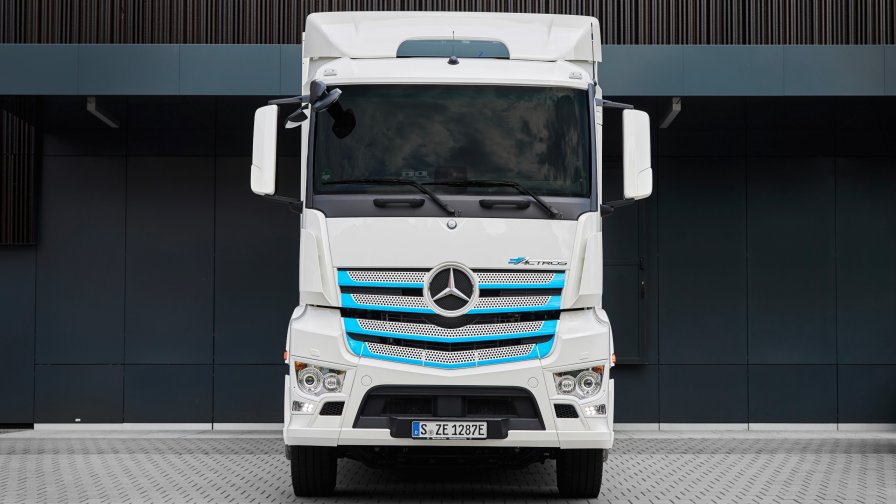
Architecture based entirely on electric drive.
The eActros is based on the frame of the Actros. Also, the eActros means architecture based entirely on electric drive with a large proportion of specific parts. For example, the drive axle is based on the ZF AVE 130, which has proven its worth in hybrid and fuel cell buses from Mercedes-Benz and has now undergone a major modification for the eActros. The drive comes from two electric motors near the wheel hubs on the rear axle.
Their output is 126 kW each, and the maximum torque is 485 Newton metres each. Downstream of the transmission that is 11,000 Newton metres each. The driving output is therefore on a level with a diesel truck. The maximal permitted axle load is the usual 11.5 tonnes. The energy is stored in lithium-ion batteries with a capacity of 240 kWh. Depending on the available charge, fully charging takes between two and eleven hours (at 150 or 20 kW).

